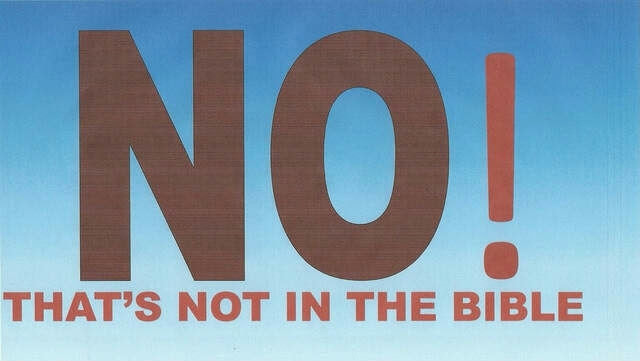False biblical teaching is much worse because it misrepresents God the Father, God the Son, and God the Holy Spirit.
You can't identify a false teacher by their clothes, their eloquence, or charisma. A false teacher is not always an impostor with an evil agenda commanding the stage and presenting a false gospel there are unfortunately plenty of people in the pulpit today preaching a message they believe is accurate.
There are men and women out there who believe they are saved and preach a method of salvation that’s sadly not in the Bible. And there are many teachers claiming to know the Word who don’t know it at all. They’re blind, leading the blind, and they’ll be held accountable for it in the end.
James 3:1 NLT Dear brothers and sisters, not many of you should become teachers in the church, for we who teach will be judged more strictly.
With all the potential deception abounding, how can we know if we’ve been exposed to false teaching?
Here are three ways to identify false teaching:
1. Phrases you thought were biblical, aren't.
Several years ago, I started a category of my blog, in which I write about the many things that a lot of people fall for as Scripture that are actually not in the Bible (see That's Not In The Bible).
I'm an ex-banker and when bankers teach their tellers to recognize counterfeit money, they don’t have them study the fake bills—they study the real ones. When you’re familiar with the truth, the lies are easier to recognize. Study the word of God, so when someone makes an inaccurate claim, you can immediately know the truth.
Psalms 119:11 NLT I have hidden your word in my heart, that I might not sin against you.
Joshua 1:8 NLT Study this Book of Instruction continually. Meditate on it day and night so you will be sure to obey everything written in it. Only then will you prosper and succeed in all you do.
2. You put more trust in experiences than in the word of God.
Some denominations and some non-denominational churches tend to place more emphasis on charismatic elements than others, but that doesn’t automatically mean they don’t believe in the inerrancy and authority of the Word and should be discarded. Be careful what you condemn and write off, just as you should be careful what you take in and believe. Experiencing God is a crucial element of our faith journey.
However, when we start to trust experience over what the Word says, we get in trouble. If a pastor or teacher claims to have heard from the Lord, be careful what you believe. Test it.
1 John 4:1-3 NLT Dear friends, do not believe everyone who claims to speak by the Spirit. You must test them to see if the spirit they have comes from God. For there are many false prophets in the world. This is how we know if they have the Spirit of God: If a person claiming to be a prophet acknowledges that Jesus Christ came in a real body, that person has the Spirit of God. But if someone claims to be a prophet and does not acknowledge the truth about Jesus, that person is not from God. Such a person has the spirit of the Antichrist, which you heard is coming into the world and indeed is already here.
If a pastor or teacher claims the Lord told them something that is contrary to the Bible, you can be certain it is false.
3. You don’t question anything.
In many places you are taught to not question the pastor or teacher because they are the pastor or teacher. Quite often they try to present their opinion as scriptural. On controversial subjects you should seek the Lord for yourself.
You should certainly have a measure of trust for your pastor and leaders in the church, but it’s also important to check their words against the word of God. A solid pastor and teacher will encourage you to do so.


 RSS Feed
RSS Feed